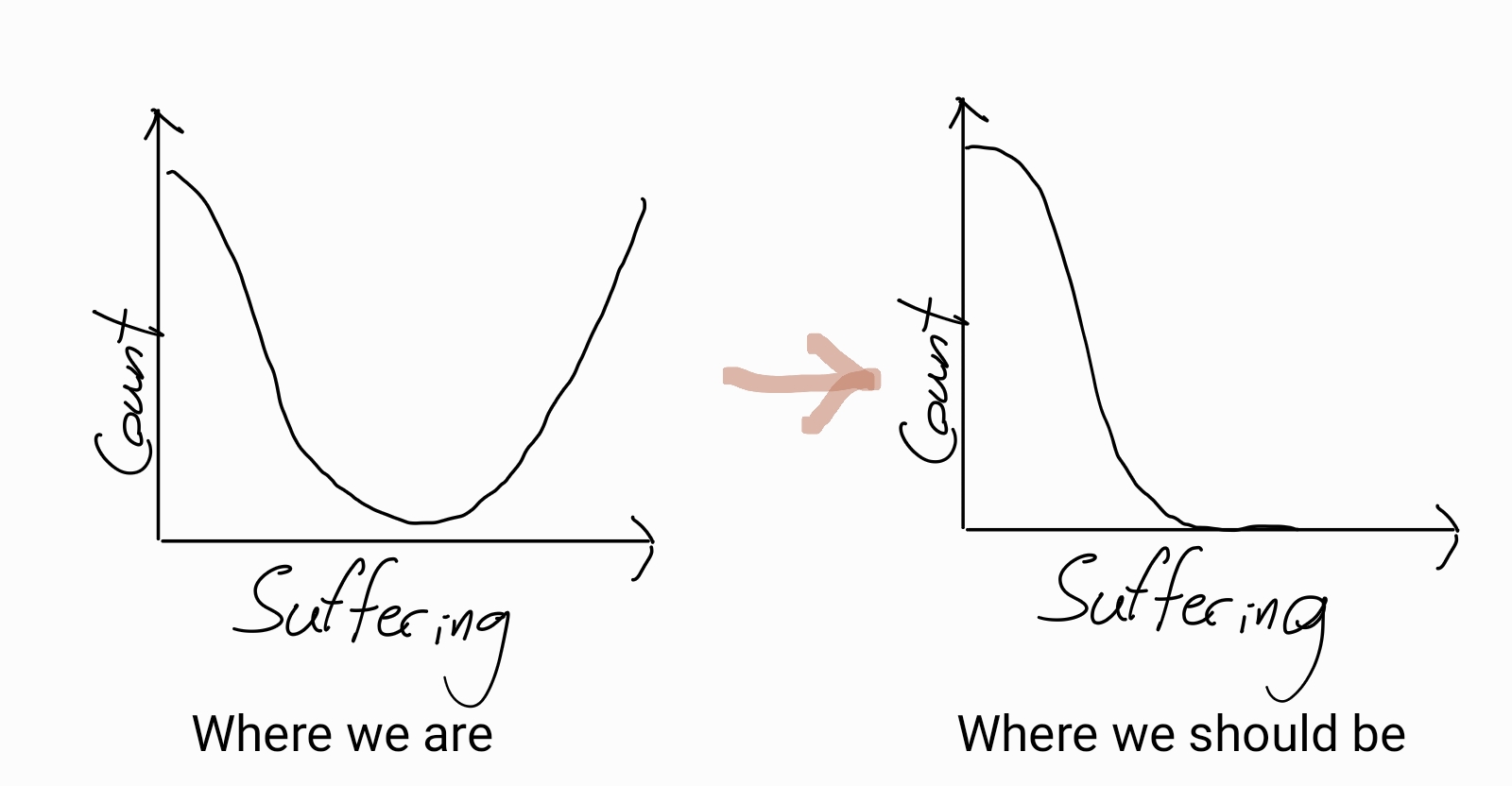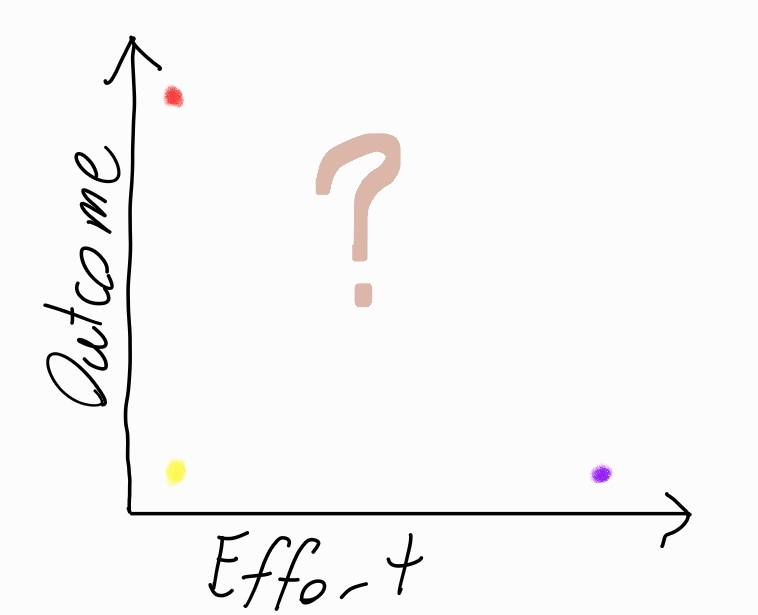To help get through my workouts everyday I listen to a podcast. My podcast of choice has changed over time starting with Wesley Livesays great podcasts on the world wars (WW1 and WW2) to The History of Byzantium, but in the last year I have switched from history to tech podcasts and now listen to the Lex Fridman Podcast. So far I really enjoy the topics he discusses and the people who discuss them (even if I don’t quite agree with everything that is said). I strictly listen to podcasts in chronological order so at this time I have only just finished episode 107 which has given me motivation to write today.
I have been quite consumed recently with the idea of my own personal luck in the ovarian lottery and what that ought to mean for me and my life. To come up with a good answer to that is beyond my time or skills but I have come up with the idea that ones level of suffering in their life should not be determined by luck. This position towards the notion that we must reduce suffering as much as possible leads to on to decreasing the expected level of suffering of a random life. The ideal goal would be that the median persons life of suffering is very low. We can’t and shouldn’t try to play god and say their should be no suffering but we should aim for the ideal. To put this in simpler words lets look at a picture.

Now I surprisingly am not exactly sure what the current suffering distribution is but I believe it to be something of a parabola albeit likely a bit flatter. Thus I feel there is a goal of changing the suffering distribution to move the median person all the way to the left. Now is also a good time to define what I really mean by suffering. Inventing my own definition of suffering seems to be a bit of challenge so I will loosely describe it as the effects of not having adequate food, water, shelter and health. This does cut out a lot of the developed worlds problems but these are not the priority.
Now that the first step of defining a goal has been mande it is important to come up with action steps to get there. To try and get a handle of the potential action space we can add some axis and bound them. Firstly we have the “how much effort scale”. On one end of the scale I could do absolutely nothing and carry on my life as usual, this would be great for me as I am in a good part of the world with good expected life outcomes. Alternatively on the other extreme I could buy a one way ticket to the developing world and spend my whole life trying to help with education or building huts etc, this would require a lot of effort and sacrifice. Now a second axis which is also important is the outcome. Worst case the outcome could be unsuccessful like trying to give food to a famine stricken country but the local warlord has sneakily corrupted the supply chain and is just stealing it all for his own use. On the other hand a greatly successful outcome is giving money directly to a collapsing community and they use it to build some infrastructure that lets them grow their own food and they become self sufficient, then they have surplus start a small research group and cure cancer (I may have gotten carried away with). This means that the action spaces look a bit like this:

There are three important extremes here. - Purple:We don’t want to be Purple as this just increases our owns suffering while reducing little to none elsewhere in the world. - Yellow: Most people are probably her which is little effort (or thought) with also little outcome. - Red: Ideally we want to aim here which I like to think of the 20% of effort that gets you 80% of the way there. Now my actions to take must to something that requires little effort (which is great because biology is inherently lazy) but has real outcome.
Now back to the podcast, the guest of this particular episode was Peter Singer. Now Peter Singer has lots of ideas and has written many great books. Not everything he says everyone agree with (like myself) but one of his key points he makes is we should “give till it (almost) hurts”. I really like this statement as it highlights two main points; you can probably give (much) more than you do now and that your giving won’t really effect you. If we combine this with effective giving by using some of the ideas and concepts developed from the Effective Altruism movement than it sounds like we are getting into the red zone. Therefore the action to undertake should be giving my money until it almost effects me.
Therefore what is my implementation going to be. Well I was already giving weekly about 5% of my income, I started this after I finished at University because for the first time I was getting paid like a real adult and had some spare money. But now really when I think about it I could give an extra 5% each week by diverting my personal “spend on whatever I want money” into some more regular donations. Thus my budget is updated and I now give 10% each week. Doing this feels like it should hurt me but it probably won’t, I can still live the normal developed world experience yet. But while living this normal developed world life I can hopefully me making some effect on the suffering distribution of the world.
I implore you to also think about this a bit more, listen to the podcast or use google directly yourself.